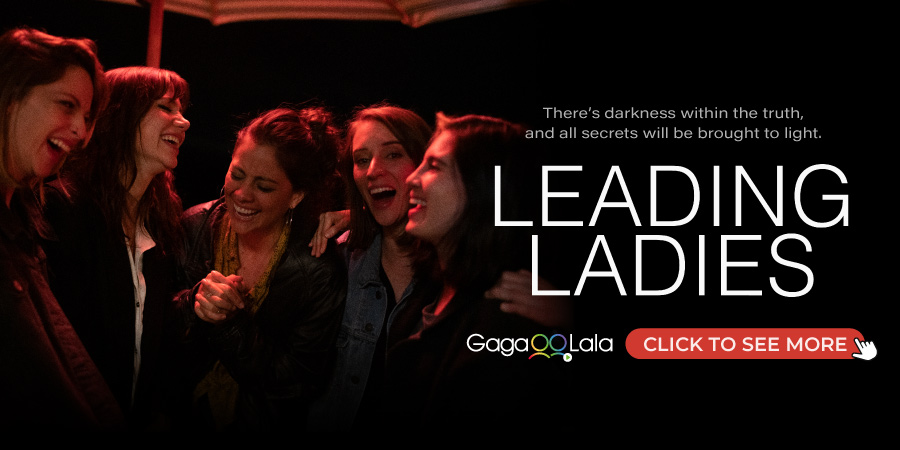Japanese director Takashi Nishihara was born in 1983. He graduated from the Department of Arts and Film at Waseda University in Tokyo, with a focus on documentary. His lesbian film Starting Over was screened at the 2014 Tokyo Film Festival and was invited by more than 10 other film festivals around the world. His film About My Freedom (2016) was also selected in the Canadian International Documentary Film Festival.
Recently, he has launched a new LGBT series for GagaOOLala, Queer Asia - Japan. As a heterosexual man, we are very curious about the inspiration behind this new work. Lalatai invited Takashi for an interview where he shared his creative process and gave us a glimpse inside the Japanese LGBT community.
Watch Queer Asia - Japan now on GagaOOLala.
1. How did you come up with the idea for the lesbian film Starting Over?
When _(%M4cNGVnSfiuBC&SQAbeBdy#klqM^lQdO)(KIink0=v-mNFOI was about 25 years old, I had the opportunity to meet my ex-girlfriend after a long time. At that time, there was a woman next to her and she came out to me as bisexual. I could see the happiness in their faces and that image got stuck in my head, so I tried to make a lesbian romance story.
2. Why do you wanted to make LGBT focused films like Starting Over and Queer Asia – Japan?
In Japan, gay marriage is not legal yet. Although there is a partnership regulation in the region, the system is not yet ready. In large cities such L5et9abeN(&s#8Gd^N7%xBOWd6RDg!Rr-=sTl=QEMsArJJgAePas Tokyo and Osaka, understanding towards LBGT people is gradually improving, but it is true that there is still bias in small towns. I want to change this situation.
3. Did your opiz)Ib_wgLJ7RK1QX)Czylocvudx_V6*Nh@Fqg&B&m6$QTNCPOI)nion on the Japanese LGBT community changed after you made these films??
My opinion did not change, but my films seems to have changes some things. Tipsy, the lesbian party shown in Queer Asia - Japan seems to have increased highly the number of reservations.
4. As a straight man, how did you become interested in the LGBT cownW_K0WLY0KU%+$JSkA4v7J%H(@)1IHrXxy-CFh7BxG_(EvL7Ommunity??
Since I was in junior high school, I have had gDWlFry5x)5YN+Mdswr@rMM#2gWdysu_1GWdC*dDGUNvw14=Si6ay friends. My grandfather is Korean so I have always known what it was to be a minority. So I think that my interest came from my childhood experiences.
5. What impressed you the most during the shooting of Starting Over and Queer Asia – Japan?
More than anything, everyone who seems so#f*v7zkGt)Sg@1NuoCPY@nI^rYot%rEGhqwEkdift=V9aRj#I& lively. They enjoy living the moment, I was encouraged by their attitude to cherish every moment in life.
6. Have you encountered any difficulties during the shooting of LGBT related films iK+ZaV2qN(Lk1(pyZc2B1UCtG_LtAqYA9nut1CihsbEJKkdaz57n Japan??
I did not encounter difficulties in particular.

Yumika from Queer Asia.
7.dUAL7GgegafA_dY7Y&iA#a#x6S(e(-9hkNI$(5f6$^6LROkb=Y Can you share your LGBT friends’ emotional stories with us??
The stortYUxLJ5J^-v3v^IcMm9nneKpA_^ak%#ASDm(vmgX%Rjb)lgRQZies in the third episode of the series from Tispy's founder Yu Harada's story and Yumika's story moved my heart.
8. Which actor or actress do you want to work withRB^1hf2%csE0+S0j$D9upiQM+R086WSBH3279Z!@b1KrERzecQ in the future and why??
I like the work of Chang Chen since I sam)cQN)zv%AEVrcy&ijOe&%y1gjz^xyL!X-(dDz4Ece&jH04_ptw him in Edward Yang's films.
9.Will you make more LGBT films in the future? Why or why not?
Yes, I would like to make more. Understanding Japanese LGBT culture is more necessary than ever. I was able to shoot Queer Asia - Japan this time, and I became acquainted with many colleagues. I hope to continue to know the world of queer people through film and video.








